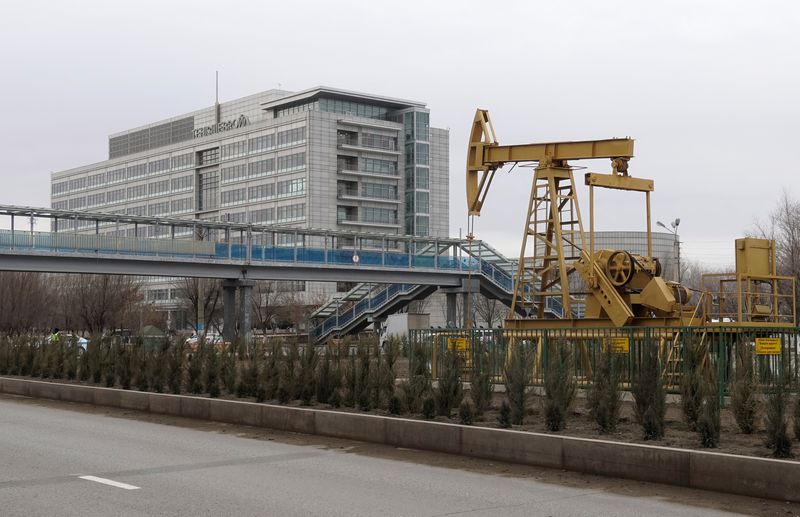(Reuters) - Kazakhstan is changing the name of the oil it exports via Russian sea ports to Kazakhstan Export Blend Crude Oil (KEBCO) to dissociate it from oil originating in Russia in order to avoid sanction risks and issues with financing.
"Due to recent significant geopolitical changes ... and to avoid negative effect of the changes on Kazakh oil exports via Russian ports, from June 2022 the following name for the grade applies - KEBCO (Kazakhstan Export Blend Crude Oil)", Kazakh oil producer CNPC-Aktobemunaigaz that transits its oil via Russian ports said in a written answer to Reuters request.
Four sources in Kazakhstan's oil companies involved in transit via Russian sea ports also confirmed the renaming of their barrels and added that the change to KEBCO will come into effect from Monday for all official documents.
According to one source, the Kazakhstan Energy Ministry is going to ask for authorisation from the government for the official usage of the new grade.
The Energy Ministry declined to comment on the matter.
Russian export blend crude oil (REBCO) or Urals, Russia's flagship crude oil loading from the state's western ports, has recently become difficult to place, especially with European buyers, due to Western sanctions and self-sanctioning by European companies. Earlier this week the EU announced an embargo on Russian oil imports from end-2022.
Kazakhstan uses Russian sea ports as a transit route for 20% of its export oil flow, some 13.3 million tonnes in 2021, while oil originated from Kazakhstan is technically not subject to Western sanctions. Kazakh shipments have been repeatedly mistaken for Russian barrels, traders said.
"It's a necessary measure, so that our oil is not sanctioned, while its name clearly shows the country of origin in the documents. Otherwise we have problems opening letters of credit," a trader involved in Kazakhstan's oil transit via Russian ports told Reuters.

Kazakh oil producers hope they can achieve better prices for their oil and sell it easier if it's clearly stated in the documents it does not come from Russia, the sources said.
The Urals oil discount to dated Brent fell to all-time low of more than $30 per barrel from the end of March.